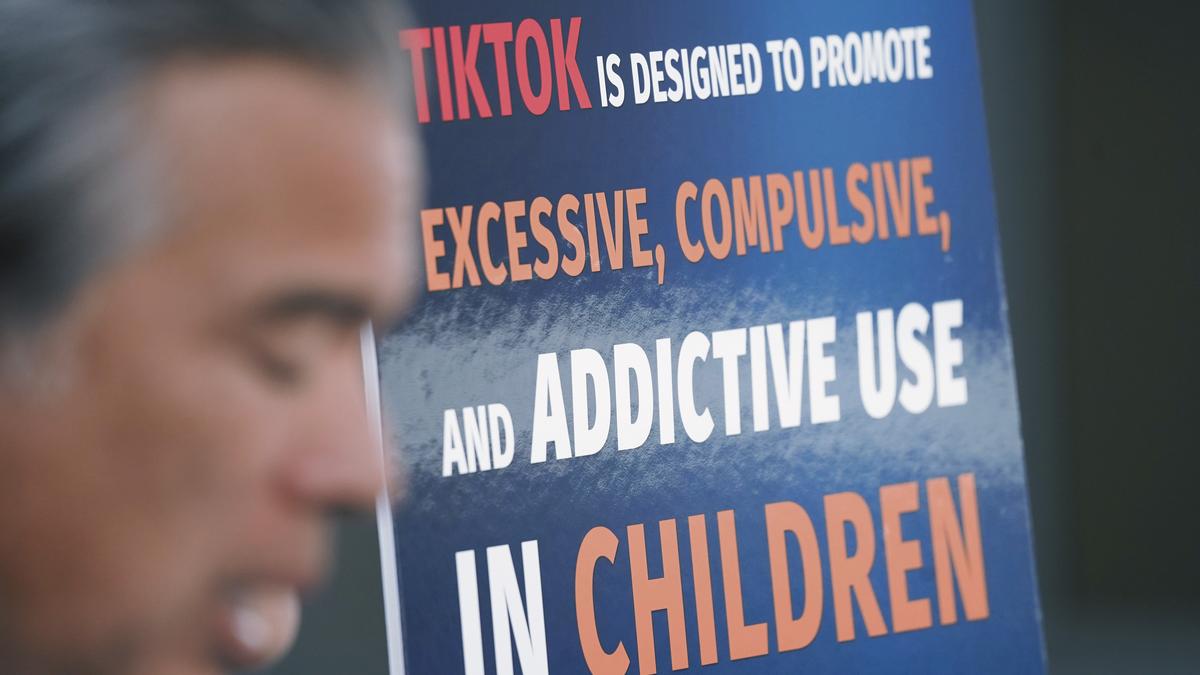TikTok is Designed to be Addictive to Kids and Causes Them Harm
More than a dozen states and the District of Columbia filed lawsuits against TikTok on Tuesday, alleging that the popular short-form video app is deliberately designed to be addictive for children and detrimental to their mental health. This significant legal move follows a national investigation into TikTok, initiated in March 2022 by a bipartisan coalition of attorneys general from states like New York, California, Kentucky, and New Jersey.

A Coordinated Legal Response to TikTok’s Impact
The lawsuits, lodged in various state courts, center on the platform’s algorithm, which curates content for users based on their interests, thus encouraging prolonged engagement. The complaints highlight design features that allegedly trap children in a cycle of endless scrolling and engagement. For instance, push notifications that create “buzzes” and filters that promote unattainable beauty standards are cited as factors contributing to addiction. California Attorney General Rob Bonta emphasized the severity of the situation during a press conference, stating, “They’ve chosen profit over the health and safety, well-being and future of our children. And that is not something we can accept. So we’ve sued.”
The Broader Context of Social Media Accountability
These recent lawsuits come nearly a year after multiple states took legal action against Meta Platforms Inc., the parent company of Instagram, for similarly harmful practices. Such legal challenges against social media companies reflect a growing concern regarding their impact on the mental health of young people. The coordinated efforts resemble past state-led actions against industries like tobacco and pharmaceuticals, which faced scrutiny for their roles in public health crises.
TikTok is now confronted with a dual challenge. Not only are state lawsuits mounting against it, but the app’s existence in the U.S. could be jeopardized by a federal law that mandates the sale of its China-based parent company, ByteDance, by mid-January. TikTok and ByteDance are currently appealing this law in a Washington appeals court, where a ruling is expected soon. In its recent filings, the District of Columbia described TikTok’s algorithm as “dopamine-inducing,” claiming it is intentionally addictive. (https://louisvilleroofing.com) The complaint suggests that the company is aware that its features could lead to severe psychological issues, including anxiety, depression, and body dysmorphia.
Addressing Exploitation and Financial Practices
The lawsuits also assert that TikTok operates an “unlicensed virtual economy” by allowing users to buy TikTok Coins, a virtual currency, which can be converted to real money by streamers. The complaint alleges that TikTok profits from these financial transactions without proper registration as a money transmitter, raising concerns about exploitation, particularly of minors.
According to officials, TikTok’s live streaming feature has led to instances of sexual exploitation, effectively turning the app into a “virtual strip club” lacking adequate age restrictions. The 14 attorneys general behind the lawsuits aim to halt these practices, impose financial penalties, and seek damages for users affected by the platform’s alleged negligence.

Social media usage among teenagers in the U.S. is near-universal, with many reporting constant engagement. Studies from the Pew Research Center indicate that a significant portion of teens experience feelings of sadness or hopelessness, which correlates with frequent social media use. As legal challenges against TikTok and other social media companies continue, the conversation around the safety and well-being of young users remains critical.


Comments are closed, but trackbacks and pingbacks are open.